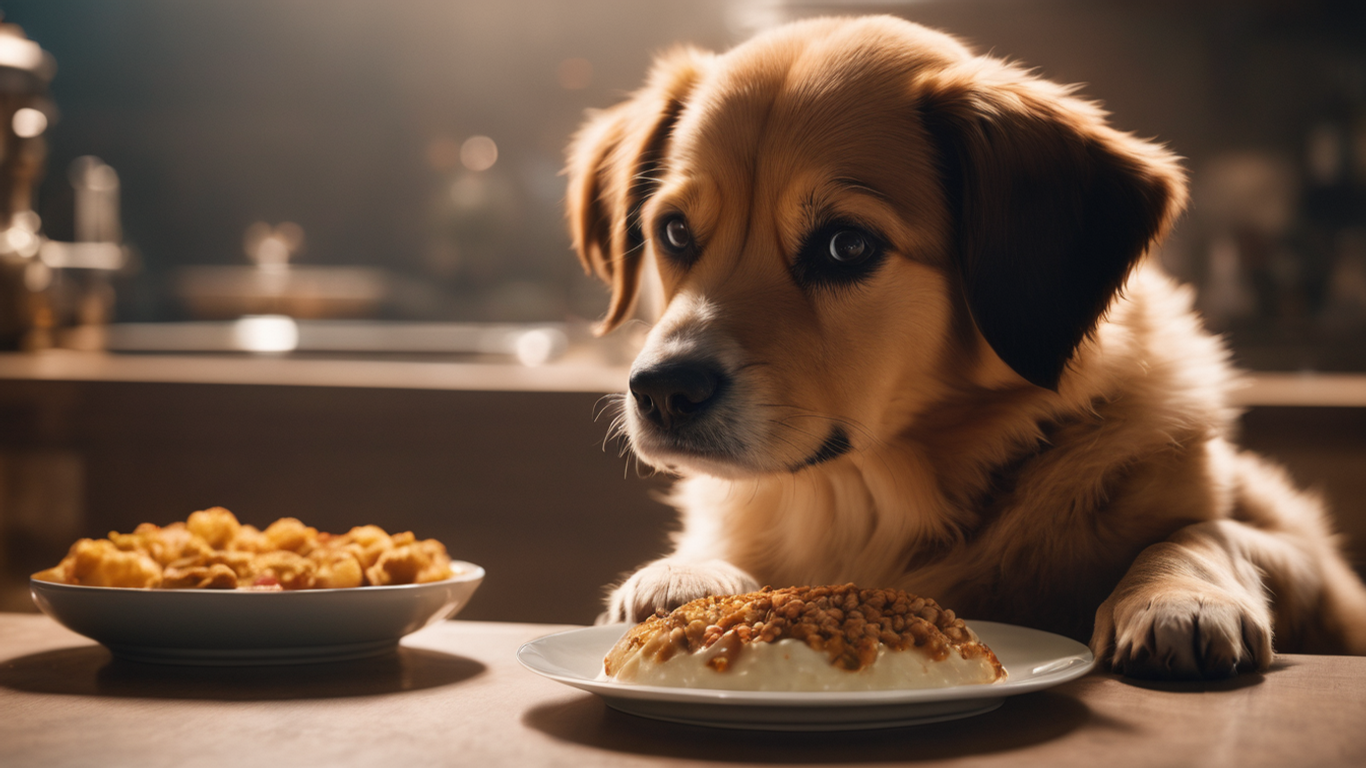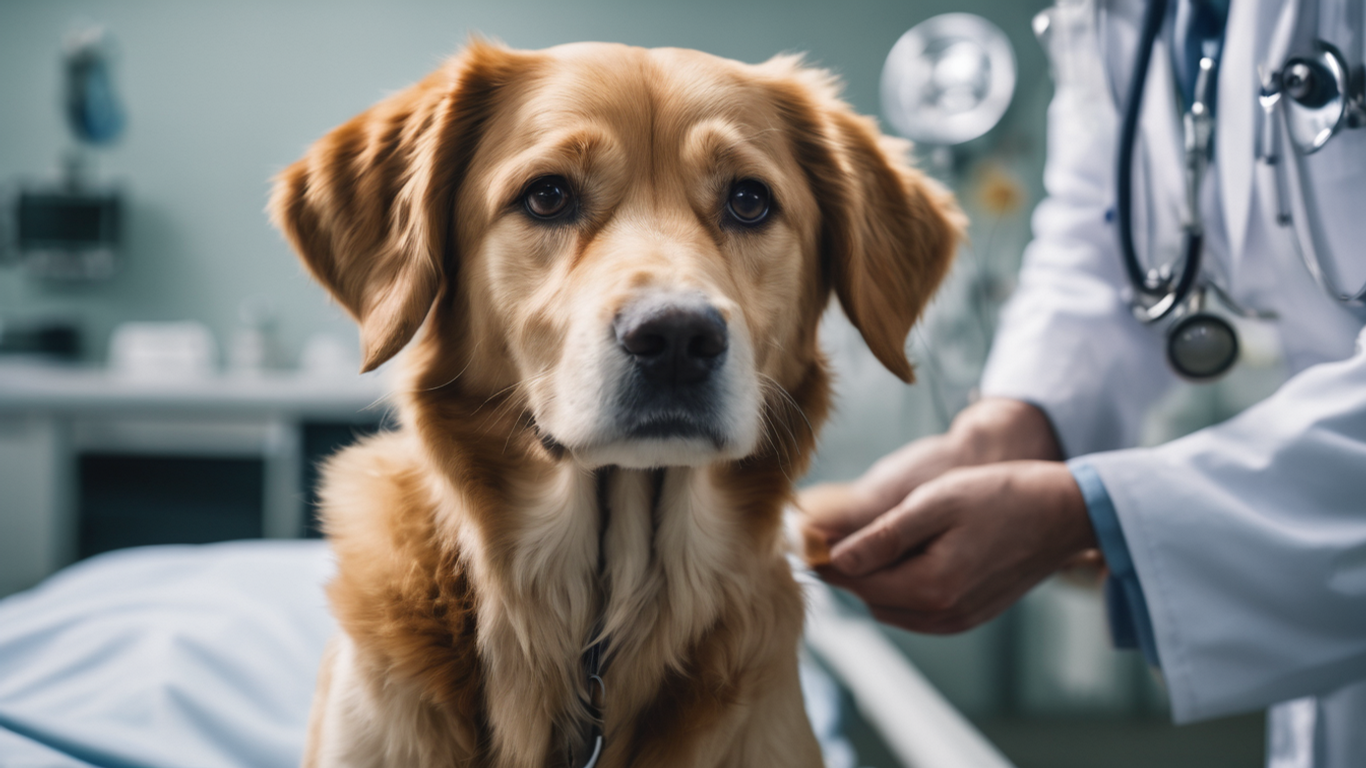22 Jan Anorexia in dogs: Symptoms, Causes and Treatment
Dogs are voracious. They always eat as if they haven’t eaten for several days. When an overeating dog suddenly becomes malnourished or loses appetite, it will indeed worry the owner. Of course, just as we may not have much appetite sometimes, dogs may lose their appetite too. If the problem continues, it’s a severe issue; you must find the reason. In this article, we introduce you to the leading causes of anorexia in dogs and tell you what to do if your dog doesn’t eat. So stay tuned for more information.Anorexia in Dogs
Anorexia in dogs is a condition characterized by a prolonged and severe loss of appetite, leading to a significant reduction in food intake. It is not a temporary reluctance to eat but a persistent refusal to consume food. Dogs experiencing anorexia may show a lack of interest in meals and may refuse to eat altogether. This condition can indicate underlying health issues and requires veterinary attention for proper diagnosis and treatment.
Symptoms of Anorexia in Dogs
Sometimes, a dog eats enough food, but the dog owner thinks that his dog is anorexic and should eat more. The food a dog needs daily depends on factors such as weight, age, activity level and health status. You shouldn’t expect two dogs to eat the same size. Suppose the dog doesn’t eat as much as before without a change in environmental conditions and mobility and is less flavorful than before. In that case, we need to look for the cause of the problem to get rid of it sooner. Not eating a meal isn’t a big concern; he may not be bored and doesn’t like to eat for any reason. However, if your dog has the following symptoms and hasn’t eaten for more than 1-2 days, it means that he has anorexia. So it’s necessary to consult a veterinarian about this.
- Eating less than usual
- Refusal to eat
- Refusing to eat his favourite treats
- Lack of interest and attention to food
- Sudden weight loss
- Weakness and lethargy
- Dog vomiting
- The dog tries to eat but is unable to do so
Different Types of Dog Anorexia
There are two types of anorexia in dogs:
- Pseudo-Anorexia: It means that the dog tends and tries to eat; But he is unable to do so due to physical problems (for example, when the dog has oral problems)
- True Anorexia: In true anorexia, the dog has completely lost his appetite and shows no interest in food. Various dog diseases, injuries, stress and health problems can lead to this disease.
 Causes of Anorexia in Dogs
Causes of Anorexia in Dogs
Anorexia can occur for many reasons. It makes the problem difficult and confusing for the owner to diagnose. In general, the most important causes of anorexia in dogs are:
Psychological Reasons
- Dog Stress and Depression: Dogs need regular routines in their environment; any change may cause them stress. For example, adding a new person to the house (having children or getting married) having a new pet or any other change in the house may stress the dog. Dogs lose their appetite when stressed and may refuse to eat until they feel calm again.
- Travel and Unfamiliar or New Environments: Travelling or moving to a new home or city can also cause anorexia. Some dogs don’t feel comfortable and safe even get motion sick when moving, or because everything around them is new and unfamiliar, they get anorexia.
Physical Reasons
- Various Dog Diseases: Dogs can lose their appetite due to underlying health issues. Anorexia is a symptom of canine distemper, infections, kidney failure, and cancers. Take your dog to a vet if they don’t eat or drink for a day or two. Diagnosing the cause of anorexia requires a vet’s expertise.
- Oral Problems: Sometimes, a dog doesn’t eat because he has dental problems, and chewing food causes pain and discomfort. Oral problems may include a loose or broken tooth, inflammation and swelling of the gums, or even oral tumours.
- Vaccination and Sterilization: Vaccination of dogs is an essential part of the care that protects them from dangerous diseases. Sterilization is also a practice recommended by veterinarians and has many health benefits for dogs. Vaccinating and spaying dogs can sometimes have short-term side effects, one of which is anorexia. Of course, these side effects are mild and will disappear quickly. So, if the dog is newly vaccinated or spayed and has anorexia, don’t worry. Encourage him to eat by giving light and suitable foods such as chicken puree with chicken broth or food recommended by a veterinarian.
- Food Poisoning and Eating Forbidden Foods: Dogs are curious and eat anything that smells or looks tempting. For example, they may eat something from garbage or eat insects and mosquitoes. Eating these things will make them feel sick and upset. Of course, some foods and fruits, such as chocolate, coffee and grapes, are dangerous and toxic to dogs and may cause poisoning and loss of appetite. Unfortunately, dogs can’t understand what is good and bad for them. They may eat anything. Therefore, as dog owners, we need to have enough information about forbidden foods for dogs and keep things out of their reach.
Visit a Veterinarian
A vet usually asks a few questions to determine why your dog isn’t eating. For example:
- Since when is your dog anorexic?
- Does your dog have no interest in food at all?
- Does he try to eat but can’t?
In addition, it’s better to inform him of any new changes in the dog’s home environment and diet. In cases where a visit and physical examination are required, it’s necessary to see a veterinarian to find out if he has pain or a swollen mass with a physical exam, including an assessment of the mouth and teeth, throat and heartbeat. Suppose the diagnosis requires a more detailed examination. In that case, the vet will consider a blood test to check for liver, kidney, and other organ problems. In addition, a stool test may be needed to assess the presence of intestinal parasites. Other tests, such as radiographs, show any abnormalities in the abdomen and chest, and endoscopy can help check the health of the throat, stomach lining, and small intestine. With all these tests, the veterinarian can finally determine the exact cause of the dog’s anorexia and prescribe the necessary treatments.
 Dog Anorexia Treatment
Dog Anorexia Treatment
- Supportive Care and Prevent the Dog from Weakening: If your dog hasn’t eaten for several days, a veterinarian will first prevent dehydration with intravenous or subcutaneous fluid therapy. For a dog that hasn’t eaten for 2-3 days, feeding with a syringe or tube may also be necessary. In many cases, some appetite suppressants may be prescribed by your veterinarian to boost your dog’s appetite. In the first step, the veterinarian administers intravenous or subcutaneous fluid therapy to prevent dehydration.
- Treat the Main Problem: Supportive care prevents the dog from becoming dehydrated and weakened so that there’s an opportunity to identify and begin the primary treatment. Next, the veterinarian will perform various tests to determine the root cause of the dog’s anorexia and start appropriate treatment. The treatment for anorexia depends on the type of problem. It may include oral medications and antibiotics to treat the infection, dental procedures in cases of dental problems, or surgery to treat internal problems.
- Refeeding: Once the necessary medical measures have been taken and the dog’s condition has stabilized, it’s time to feed the dog little by little. The veterinarian usually recommends giving the first 2-3 days of food in several meals, each time in small amounts. This process continues, and the volume of food in each meal increases until finally, after a week, the dog returns to his regular diet.
Essential Points for Improving and Treating Dog Anorexia
Follow your veterinarian’s advice for your dog’s feeding and managing daily activities to get better sooner. The digestive system becomes very sensitive after not eating for a while. These instructions precisely prevent problems, allergies and gastrointestinal diseases in dogs. If after 1-2 days, the dog’s appetite doesn’t make any difference or improve, be sure to inform the veterinarian and, in the meantime, carefully monitor the dog’s defecation status and behaviour.
The Last Word
In this article, we talked about the causes of anorexia in dogs. The reason for dog anorexia can be many things, such as stress, various diseases, poisoning, oral problems, pain and discomfort. Determining the root cause of this problem is sometimes difficult and requires consulting a veterinarian. To have a healthy and lively dog, you must pay attention to nutrition, activity, health, grooming and much more. You can prevent the disease and have a healthy dog in this case. In all these steps, you can count on the specialized MishkaGrooming team. Our experienced and precise groomers have groomed your dogs carefully and accurately so that they trust the moments for the next session.




Sorry, the comment form is closed at this time.